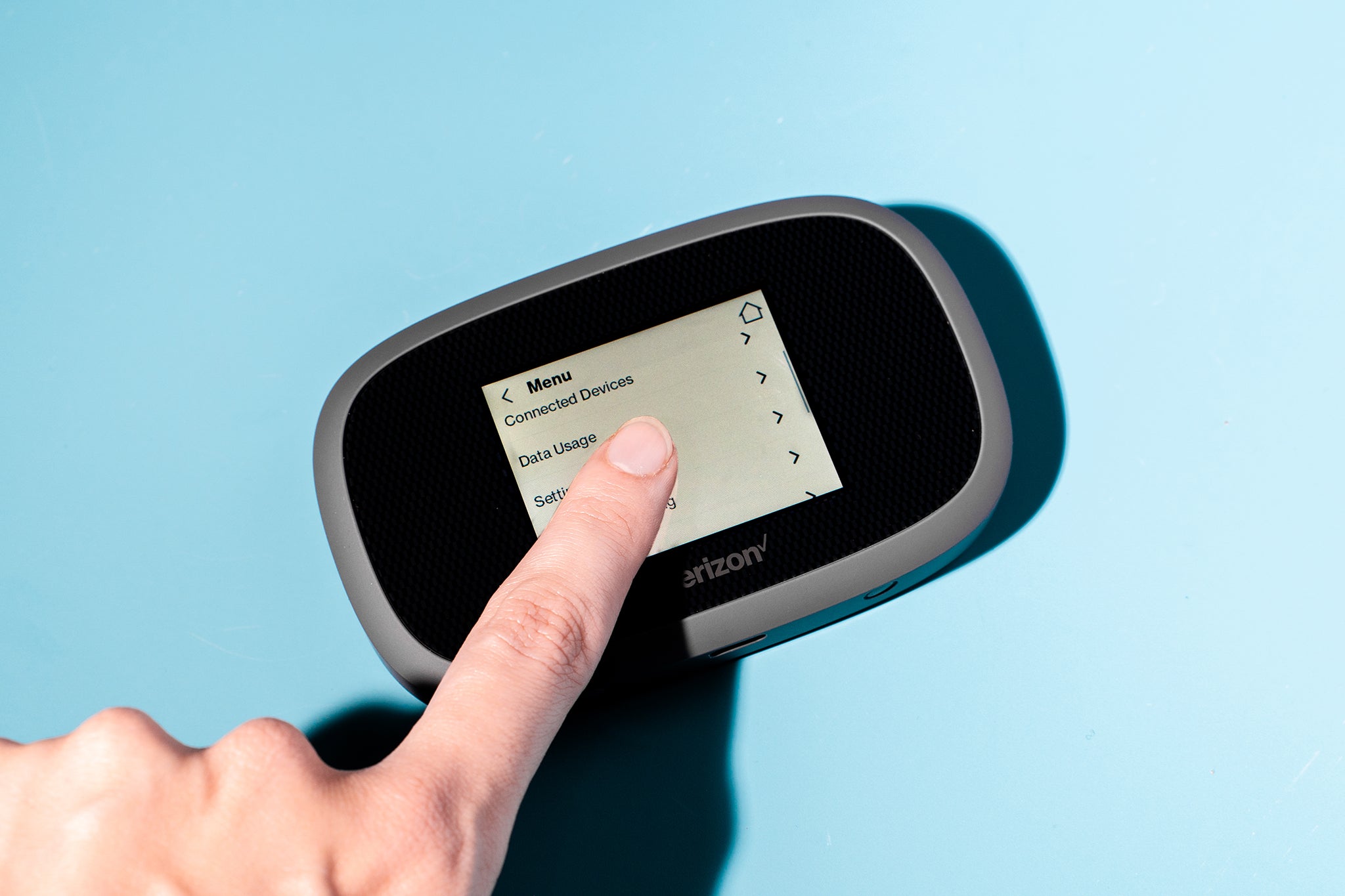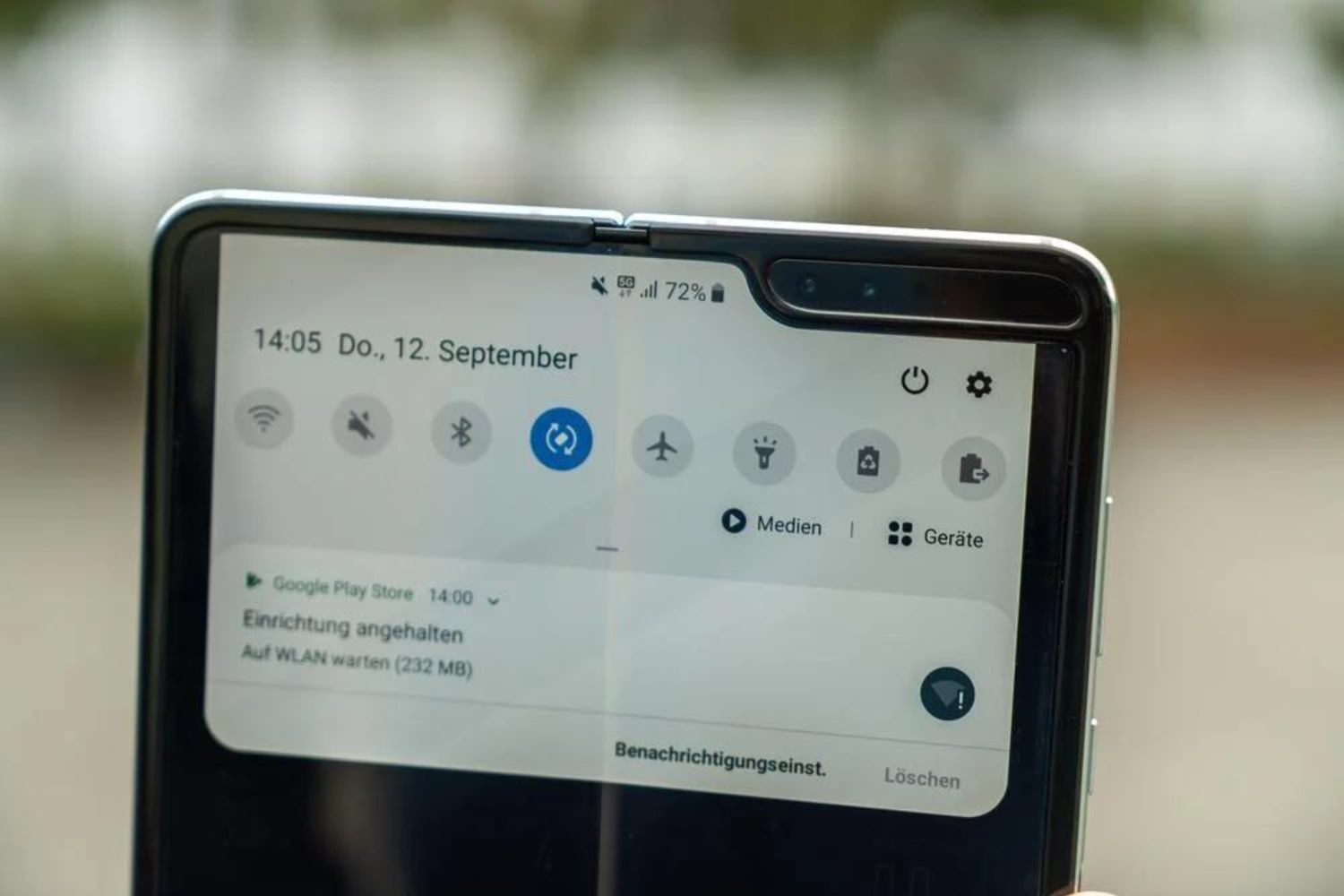Coverage and Signal Strength
When it comes to selecting a mobile hotspot plan, one of the most critical factors to consider is the coverage and signal strength offered by the service provider. After all, what good is a mobile hotspot if it can't reliably connect you to the internet when and where you need it most?
The first step in evaluating coverage and signal strength is to research the network coverage maps provided by the service providers. These maps offer a general overview of where the provider's network reaches, allowing you to determine if the areas you frequent are covered. Keep in mind that these maps are based on estimations and may not always accurately represent real-world conditions. Therefore, it's advisable to seek feedback from current users in your area to get a more accurate understanding of the coverage.
Signal strength is equally important, as it directly impacts the quality of your connection. A strong signal ensures faster data speeds and a more reliable connection. Factors such as distance from cell towers, obstructions like buildings or natural terrain, and network congestion can all influence signal strength. It's worth noting that different service providers may have varying signal strengths in the same location, so it's beneficial to gather insights from local users or use signal strength apps to gauge the performance of each network.
Moreover, it's essential to consider the type of technology used by the service provider. For instance, 5G networks offer faster speeds and lower latency compared to 4G LTE, but their coverage may be limited to urban areas. On the other hand, 4G LTE networks provide more extensive coverage, making them a more reliable choice for rural or remote locations.
In summary, thoroughly researching the coverage and signal strength of mobile hotspot providers is crucial for ensuring a seamless and dependable internet connection. By considering coverage maps, real-world feedback, signal strength, and network technology, you can make an informed decision that aligns with your specific connectivity needs.
Data Allowance and Speed
When evaluating mobile hotspot plans, the data allowance and speed are pivotal factors that can significantly impact the overall user experience. Data allowance refers to the amount of data you are permitted to use within a specified billing cycle, while speed pertains to the rate at which data is transmitted and received over the network.
Data allowance plays a crucial role in determining how extensively you can utilize your mobile hotspot. If you primarily engage in light internet browsing and occasional email checking, a plan with a modest data allowance may suffice. However, for activities such as video streaming, online gaming, or large file downloads, a plan with a more generous data allowance is essential to prevent frequent overage charges or throttled speeds.
In addition to the allocated data volume, it's important to consider any potential restrictions or limitations imposed by the service provider. Some plans may include deprioritization thresholds, where your connection speed could be reduced during times of network congestion after surpassing a certain usage threshold. Understanding these nuances is crucial for anticipating potential speed reductions and managing your data consumption effectively.
Speed, on the other hand, directly influences the responsiveness and performance of your internet connection. It is typically measured in terms of download and upload speeds, represented in megabits per second (Mbps). The download speed dictates how quickly data can be retrieved from the internet, while the upload speed governs the rate at which data is sent from your device to the internet.
When comparing mobile hotspot plans, it's essential to assess the advertised speeds and ascertain whether they align with your usage requirements. For instance, if you frequently engage in bandwidth-intensive activities such as video conferencing or high-definition video streaming, opting for a plan with higher download and upload speeds is imperative to ensure a seamless and uninterrupted online experience.
Furthermore, the actual speeds experienced by users may vary based on several factors, including network congestion, signal strength, and device compatibility. Thus, it's advisable to seek insights from current users or leverage independent speed testing tools to gauge the real-world performance of each service provider.
In essence, carefully evaluating the data allowance and speed offered by mobile hotspot plans is essential for tailoring your selection to match your specific usage patterns and performance expectations. By understanding the implications of data allowances, potential restrictions, and speed variations, you can make an informed decision that optimally caters to your connectivity needs.
Cost and Contract Options
Cost and contract options are pivotal considerations when evaluating mobile hotspot plans, as they directly impact the financial commitment and flexibility associated with the chosen service provider. Understanding the various cost elements and contract structures is essential for making an informed decision that aligns with your budget and long-term connectivity needs.
The cost of a mobile hotspot plan encompasses multiple components, including the monthly service fee, equipment charges, and potential additional fees. When comparing plans, it's crucial to assess the total cost of ownership over the anticipated usage period. While some plans may appear cost-effective initially, they could entail hidden fees or higher equipment costs, ultimately inflating the overall expenditure. By carefully scrutinizing the breakdown of costs, you can gain clarity on the true affordability of each plan and avoid unwelcome financial surprises.
Moreover, examining the contract options offered by service providers is integral to understanding the commitment and flexibility associated with each plan. Contractual agreements typically dictate the duration of service commitment, early termination fees, and potential benefits or limitations. Opting for a contract-based plan may yield cost savings or equipment subsidies, but it necessitates a specified commitment period. On the other hand, contract-free plans provide greater flexibility and the freedom to adjust or terminate the service without incurring penalties, albeit potentially at a higher upfront cost.
In addition to the standard contract options, some providers offer prepaid or pay-as-you-go plans, which grant users the freedom to pay for services on a month-to-month basis without long-term obligations. While these plans may offer flexibility and eliminate the need for credit checks or contractual commitments, they often involve higher equipment costs and may lack the cost-saving advantages associated with traditional contracts.
Furthermore, it's essential to consider potential promotional offers, discounts, and bundling options that could influence the overall cost-effectiveness of a mobile hotspot plan. Service providers frequently introduce promotional pricing, limited-time discounts, or bundle deals that encompass multiple services, such as mobile phone plans and home internet, offering potential savings and added value.
By meticulously evaluating the cost and contract options available from different service providers, you can make an informed decision that harmonizes with your budgetary constraints and long-term connectivity preferences. Understanding the total cost of ownership, contractual commitments, potential fees, and available promotional offers empowers you to select a mobile hotspot plan that optimally balances affordability and flexibility, ensuring a satisfying and cost-effective connectivity experience.
Device Compatibility
Device compatibility is a crucial aspect to consider when assessing mobile hotspot plans, as it directly influences the seamless integration and optimal performance of your devices with the chosen service provider's network. The compatibility of your devices with the network technology and frequency bands utilized by the provider plays a pivotal role in ensuring a reliable and efficient connectivity experience.
First and foremost, it's imperative to ascertain whether your existing devices, such as smartphones, tablets, laptops, or IoT gadgets, are compatible with the network technology deployed by the mobile hotspot service provider. For instance, if the provider predominantly operates on a 4G LTE network, ensuring that your devices support this technology is essential for achieving the best possible connection speeds and network coverage. Conversely, if the provider offers 5G connectivity, verifying that your devices are 5G-capable is crucial for harnessing the enhanced speeds and latency benefits associated with this advanced network standard.
In addition to network technology compatibility, the frequency bands utilized by the service provider warrant careful consideration. Different frequency bands are allocated for wireless communication, and the compatibility of your devices with the specific bands deployed by the provider directly impacts signal reception, data speeds, and overall network performance. Assessing whether your devices support the primary frequency bands used by the provider enables you to anticipate the quality of your wireless connection and avoid potential compatibility issues that could hinder your connectivity experience.
Furthermore, it's essential to evaluate the number of devices that can simultaneously connect to the mobile hotspot and the compatibility of various device types. Some mobile hotspot plans impose limitations on the number of devices that can concurrently access the network, while others offer robust support for multiple connections, catering to the needs of individuals or small groups. Understanding the device compatibility limitations and capabilities of each plan is crucial for ensuring that all your devices can seamlessly connect to the mobile hotspot without encountering connectivity restrictions or performance bottlenecks.
Moreover, considering the compatibility of your devices with the mobile hotspot hardware provided by the service provider is essential for achieving a harmonious and trouble-free connectivity setup. While some providers offer dedicated mobile hotspot devices, others may allow you to utilize your existing smartphones or tablets as hotspots. Assessing the compatibility of your devices with the recommended or provided hotspot hardware enables you to leverage the full functionality and performance potential of the mobile hotspot service, ensuring a seamless and optimized connectivity experience.
In summary, thoroughly evaluating the device compatibility aspects of mobile hotspot plans is essential for ensuring that your devices seamlessly integrate with the service provider's network, enabling you to harness the full potential of the connectivity offerings. By considering network technology compatibility, frequency band support, device quantity limitations, and hardware compatibility, you can make an informed decision that aligns with your devices' capabilities and optimizes your connectivity experience.
Customer Service and Support
Customer service and support are paramount considerations when evaluating mobile hotspot plans, as they directly influence the overall user experience and the resolution of potential connectivity issues. A service provider's commitment to delivering responsive, knowledgeable, and accessible support significantly impacts the reliability and satisfaction associated with the chosen plan.
First and foremost, assessing the accessibility and responsiveness of customer support channels is essential for anticipating the level of assistance available when encountering technical challenges or service inquiries. Service providers offering diverse support channels, such as phone support, live chat, email correspondence, and comprehensive online resources, empower users to seek assistance through their preferred communication medium, ensuring prompt and tailored resolutions to their concerns. Moreover, evaluating the availability of customer support, including 24/7 assistance or extended service hours, is crucial for addressing urgent connectivity issues and accessing timely guidance when needed most.
Additionally, the quality and expertise of customer support representatives play a pivotal role in delivering effective solutions and guidance. Assessing the reputation and user feedback regarding the competence and helpfulness of the support team enables prospective users to gauge the likelihood of receiving accurate, insightful, and personalized assistance. Service providers that prioritize ongoing training and development for their support personnel often yield superior customer experiences, as knowledgeable and empathetic representatives can efficiently address complex technical inquiries and provide valuable insights to enhance the overall connectivity experience.
Furthermore, the availability of comprehensive self-service resources, including FAQs, troubleshooting guides, and user forums, is instrumental in empowering users to independently resolve common issues and optimize their connectivity setup. Service providers that offer robust self-service platforms complemented by user communities foster a collaborative environment where users can share insights, troubleshoot challenges, and leverage collective expertise to enhance their connectivity experience.
Moreover, the efficiency and transparency of issue resolution processes, such as service ticketing systems and escalation protocols, are pivotal aspects to consider when evaluating the customer service and support framework. Understanding the mechanisms for reporting and addressing connectivity issues, as well as the expected timelines for resolution, enables users to anticipate the level of support accountability and the likelihood of swift issue remediation.
In essence, meticulously evaluating the customer service and support framework offered by mobile hotspot providers is essential for anticipating the accessibility, expertise, and effectiveness of the support ecosystem. By considering the availability of support channels, the competence of support representatives, the presence of self-service resources, and the efficiency of issue resolution processes, users can make an informed selection that prioritizes reliable and responsive support, ensuring a seamless and gratifying connectivity experience.

























